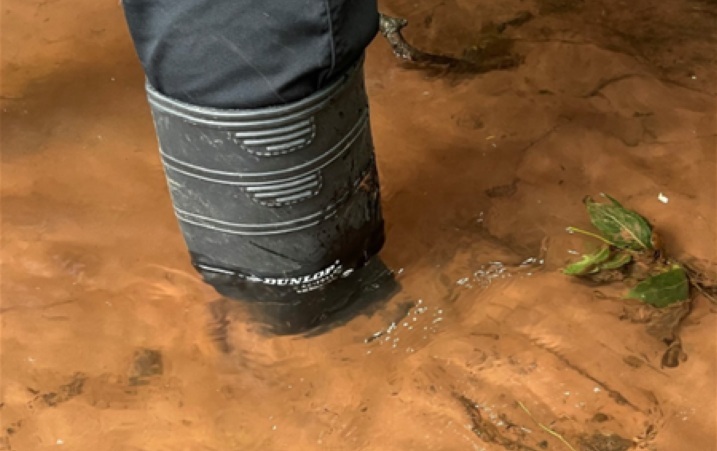
A farmer has been hit with more than £40,000 in fines after tonnes of potatoes and silt spilled from his field, shutting a major road and polluting a local river in a dramatic environmental incident.
David Mitchell pleaded guilty to causing sediment-laden water to flow from farmland under his control into a tributary of the River Tone.
The pollution, which happened at Hillcommon near Taunton, Somerset, occurred during two heavy rainfall events in August and September 2022.
The Environment Agency described the run-off as “ankle-deep” and said it had a serious impact on the nearby Back Stream in Combe Florey, covering the riverbed “bank to bank” with a thick layer of sediment.
At Taunton Magistrates' Court on 18 June 2025, the judge concluded that it would take a full winter of normal water flow to naturally clear the river.
The field in question had been rented by Mr Mitchell to grow potatoes, which had not yet been harvested at the time.
Thunderstorms and poor soil management led to an estimated 50–100 tonnes of soil being lost from the sloping field.
Large numbers of potatoes, silt and mud made their way onto the A358 and into the Back Stream, forcing the closure of the busy road on two separate occasions while emergency crews cleared drains and removed tonnes of debris.
In court, Mr Mitchell was ordered to pay £9,078 in fines and costs within 12 months, based on his financial means.
It was also heard that he had already paid more than £35,000 in compensation and clean-up expenses, including the cost of new equipment and a payment of £1,128.10 to a motorist affected by the road closure.
The Environment Agency confirmed that a similar incident had occurred just a month earlier, also resulting in the closure of the A358.
After the first incident, Mr Mitchell was provided with silt fencing, advice, and guidance funded by the Somerset Rivers Authority.
However, only a small section of fencing was used, and it was not installed in line with the advice given. Additionally, hay bales and a soil bund installed at the base of the field proved ineffective.
Investigators also found that the potatoes had been planted up and down the slope of the field—an agricultural practice known to increase the risk of erosion.
David Womack, from the Environment Agency, said Mr Mitchell bore responsibility for the land he rented until harvest and was therefore accountable for how it was managed.
“He chose to grow a high-risk crop on a sloping field with light soils,” he explained. “As an experienced potato farmer he should have identified the risks of using this field and taken reasonable steps to prevent large scale soil loss.”
Mr Womack added that no formal risk assessment had been carried out and no effective measures were put in place to prevent erosion, making environmental damage “highly likely… even in moderate rainfall conditions.”
